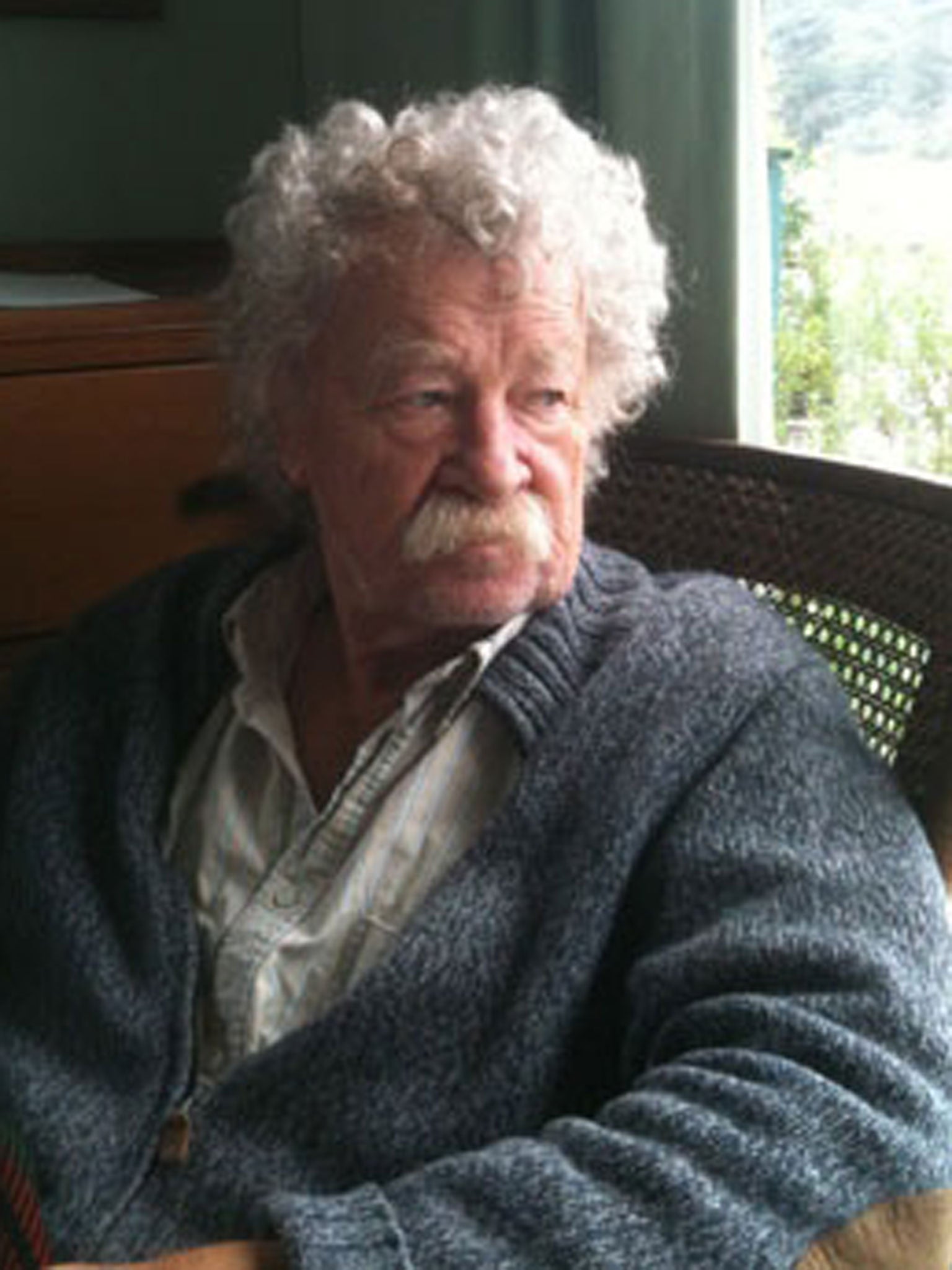Alan Sharp: Writer best known for 'Rob Roy' and 'Night Moves'

Scotland has never been short of literary heroes, and the mighty Alan Sharp, whose career began with good, modest novels and took him to a Hollywood where he retained a commendably individual voice, is most certainly one of them.
He delivered one of the most important Scottish novels of the 20th century, and in the thrilling arena of the New Hollywood of the early 1970s delivered the gems Night Moves and The Hired Hand. Later in life he rolled his national identity and his cinematic craft into one with his marvellous script for Rob Roy.
Sharp was born in Dundee in 1934, and six weeks later his mother handed the illegitimate child over for adoption to a Greenock shipyard worker and his wife, who had Salvation Army connections. Like fellow Greenock writer Peter McDougall (whose work also brooded on family betrayals and flirted with the Western genre), Sharp started off as a shipyard worker but soon fled to London, in his case to work as an assistant to a private detective.
Fantasies of a film noir existence soon dissolved, however, when the job turned out to be little more than collecting petty debts while his boss sat in the pub. After national service he returned to Greenock, but after handing his wife the grant he had been awarded to go to college, he left to try his hand at writing.
A Green Tree in Gedde (1965) was a magnificent first novel, filled with beautiful descriptions of the Scottish landscape, which framed a tough story of four young people searching for their own identities, sexual and social. Despite winning the Scottish Arts Council Award in 1967, the book was withdrawn from public libraries in Edinburgh because of an incestuous relationship at its core. Undeterred, Sharp wrote a follow-up, The Wind Shifts (1967), but the last of the planned trilogy was unfinished as screenwriting got the better of him.
He entered British television at just about the best time in history for a writer to do so, though unlike so many of his contemporaries, he did none of his best work there. He had won a Prix Italia for his radio play The Long Distance Piano Player in 1962, however, and a television version of the piece became the last of Sharp's four works for the medium. Because of the eye-catching casting of a saturnine Ray Davies in the lead role, the story of a young musician in a drizzly Northern town attempting to beat the world record for non-stop piano playing was chosen to launch the BBC's Play for Today in 1970 – but did so in a rather lukewarm manner.
He got off to a much better start in Hollywood with The Last Run (1971), a chase thriller starring George C Scott, and immediately built on it with The Hired Hand (1971), which Peter Fonda directed and starred in. A Western about a man who returns to his estranged wife to work as a handyman chimed deeply with Fonda, whose marriage was breaking up. Sharp felt that Fonda's obsession with the story and his heavy drug use led to an over-complicating of the piece, and the end result was largely ignored upon its release, though it has since won great critical acclaim for its study of the war between machismo and love.
Sharp was unstoppable in those glory years of the New Hollywood, his finest achievement being Night Moves (1975), an intricate thriller starring Gene Hackman as an embittered detective cuckolded by his wife and searching for a missing girl – and ultimately himself – in a world bereft of logic and trust. The film is as much about Hollywood changing as the world itself changing, but perhaps because Sharp's writing showcased an age so acutely, his profile dropped considerably over the next two decades.
Hollywood was changing again after the hullabaloo of Jaws and Star Wars, and many of his projects remained unfilmed or made little impact. He even tried his hand at directing with Little Treasure (1985), and wrote competently for American television, but it wasn't until the mid-1990s that true success came again with Rob Roy (1995). Sharp's screenplay was gutsy and epic, showing again a fondness both for the romantic Western and the mean streets of his childhood.
Mouth-watering projects were planned in the wake of Rob Roy, including a film of James Hogg's Confessions of a Justified Sinner and a biopic of Rabbie Burns, but sadly they never appeared. Plenty more did though, and Sharp's screenplay for Dean Spanley (2008) took a seemingly unfilmable whimsy about reincarnated dogs and turned it into a funny and touching exploration of father-son relationships. It was the final proof of how a writer from Greenock understood the language of cinema and ultimately, returning to his earliest themes, the distances that lie between the closest of relations.
Sharp was married four times, including to the novelist Beryl Bainbridge, whose novel Sweet William he inspired. He had six children, including, by Bainbridge, the actress Rudi Davies.
Simon Farquhar
Alan Sharp, writer: born Alyth, Scotland 12 January 1934; married four times (six children); died Los Angeles 8 February 2013.
Join our commenting forum
Join thought-provoking conversations, follow other Independent readers and see their replies
Comments
Bookmark popover
Removed from bookmarks